Discover Future Ecologies
Future Ecologies

Future Ecologies
Author: Future Ecologies
Subscribed: 878Played: 18,177Subscribe
Share
© Copyright 2026 Future Ecologies
Description
Made for nature lovers and audiophiles alike, Future Ecologies explores our eco-social relationships through stories, science, music, and soundscapes. Every episode is an invitation to see the world in a new light — weaving together narrative and interviews with expert knowledge holders.
The format varies: from documentary storytelling to stream-of-consciousness sound collage, and beyond. Episodes are released only when they're ready, not on a fixed schedule (but approximately monthly).
This ad-free, independent podcast is supported by our listeners: https://www.futureecologies.net/join
The format varies: from documentary storytelling to stream-of-consciousness sound collage, and beyond. Episodes are released only when they're ready, not on a fixed schedule (but approximately monthly).
This ad-free, independent podcast is supported by our listeners: https://www.futureecologies.net/join
110 Episodes
Reverse
Eric Higgs (of FE3.1, FE3.2, FE3.3, and FE4.9) sits down with Laura Govers, who has been working on bringing eel grass back to the Netherlands' Wadden Sea — on an island that moves, no less!This conversation covers the low-tech solutions that they concocted to plant hectares of eel grass, the social invisibility of the marine domain, and the semantics of "restoration" in a rapidly changing world.Catch some videos of Laura's team over at the Zeegrasherstel NL YouTube channel. And don’t miss our own visit to Oostvaardersplassen, in FE4.3 “A Tiny Wilderness”— — —🪼💖 Everything we do is brought to you ad-free by our wonderful supporting listeners.Join us on Patreon to get Hyphaedelity and all Future Ecologies episodes early, as well as exclusive bonus content, discord server access (where you can also find our book club), stickers, patches, cozy hats, and more.
Bogs are our absolute favourite places to be. They’re not only tremendously important ecosystems, rich in exquisite biodiversity and massive stores of carbon, they’re also uniquely beautiful. These serene, colourful spaces jumble land and water into something at once both alien and familiar.In this episode, we explore the wonders and the mysteries of peatlands, through the story of one very special (and threatened) bog just outside of the city of Vancouver. We meet the scientists who fought for its protection, and some of the folks who are studying it and working on restoring it to this day.Plus, we answer a tricky question: should we still be extracting peat to help grow plants?— — —Visit futureecologies.net/listen/fe-6-8-for-peats-sake for photos from some of our boggy adventures, full credits, citations, and a transcript of this episode🪼💖 This episode is sponsored by our amazing community of supporting listeners. If you appreciate it, you can become one yourself! Get the scoop at futureecologies.net/support
Mendel has another show to share with you: WaterbodiesIt's a video podcast dedicated to a particular body of water we have here in Vancouver, called False Creek, but more generally it’s about how we can transform our urban spaces into thriving, biodiverse, celebrations of living nature — for everyone’s benefit.If you live in a city on a coast, and you dream of swimming in clean waters, tidepooling along the shore, and seeing all kinds of sea life, right next to downtown, this show is for you.So far on Waterbodies, we’ve discussed the interplay of environmental and human health, frameworks for Indigenous protected and conserved areas, environmental rights and personhood, marine biodiversity and citizen science, and urban planning in the face of rising sea levels, and there’s lots more to come.Find Waterbodies on the False Creek Friends YouTube channel and wherever you get podcastsPS. This is more than a podcast. It's a project in civic reimagination. If you'd like to get involved with grassroots environmental democracy, and take part in shaping the future of Vancouver, we'd love to have your help. Visit falsecreekfriends.org to learn more and get involved.
We had the opportunity to hang out with two of our favourite podcasters: Amy Martin of Threshold, and Amy Westervelt of Drilled.We've previously featured both of their work on the Future Ecologies feed, and we couldn't pass up the chance to talk shop about the latest (fantastic) seasons of their respective shows, and get to know more about their personal journey. That's this episode: Part 1In the supporter-exclusive Part 2, we get into more of a roundtable on the practice of environmental journalism and podcasting in these especially scary and chaotic times. For the two of us, unschooled and unqualified in anything resembling journalism, it was a blast to have the privilege of what ended up being a private consulting session with two of our heroes. Interested? You can find it on our Patreon
What do you call it when a population of podcasts mysteriously drop episodes on the same topic at the same time? It's Critical Mast!We're so proud to present this nutty experiment in community podcasting, with its roots going back to the very beginning of our show (and the beginning of our dedication to silly puns).Thanks to help from our pals at Jumpstart Nature, Golden State Naturalist, Learning from Nature: The Biomimicry Podcast, Nature’s Archive, and Outside/In, it's time for a bumper crop of podcasts about (or inspired by) the perplexing phenomenon known as masting: where plants somehow synchronize their seed production across staggering distances.Give all these pods all a follow, & check out this Spotify playlist (to which episodes will be added as they drop).— — —🌱 💖 Thanks to all our supporters for making this show possible (and keeping it ad-free and independent)Join our community for as little as $1/month for access to early episode releases, a bonus podcast feed, merch, our discord server, book club, and more!
We've got another edition of our intermittent interview show for you, this one featuring Sadie Couture in conversation with Hannah Tollefson.You'll remember Sadie as co-producer and reporter of FE3.4 — Dama Drama. Since then, she’s become a PhD student in Communication Studies at McGill University pursuing research at the intersection of media history, sound studies, and feminist science and technology studies.Hannah's work is situated at the intersection of environmental, media, and infrastructure studies. She researches the role of socio-technical systems in land, water, and labour struggles, infrastructures of energy transition, and the politics of green capitalism.This episode focusses on Hannah’s writing on the Port of Vancouver, the concept of "tidewater", the nature of logistics, and the supply chain in which we’re all entangled. Don't miss it.(Hannah's dissertation, the main subject of this discussion, is under University embargo until Dec 14, 2025. Check back here after then for a link. Until then, one chapter is available below).Hannah kindly compiled the following citations:ReferencesKD Derickson, The Annihilation of Time by Space: https://www.researchgate.net/publication/335733261_The_annihilation_of_time_by_spaceDeborah Cowen, The Deadly Life of Logistics: https://www.upress.umn.edu/9780816680887/the-deadly-life-of-logistics/Reconstructing Pre-contact Shoreline (UBC article): https://open.library.ubc.ca/soa/cIRcle/collections/facultyresearchandpublications/52383/items/1.0407075Hannah Tollefson, on the ECHO program in The Journal of Environmental Media https://www.researchgate.net/publication/383972463_On_synchronicity_Green_shipping's_logistical_and_real-time_mediaRelated news & linksFuture Ecologies episode “Terminal”: https://www.futureecologies.net/listen/fe-4-2-terminalOn plans to dredge Burrard Inlet: https://www.cbc.ca/news/canada/british-columbia/dredge-burrard-inlet-vancouver-fraser-port-authority-tsleil-waututh-nation-1.7545465On tanker traffic impacts of TMX: https://www.cbc.ca/news/canada/british-columbia/tanker-traffic-trans-mountain-pipeline-expansion-1.7305702Report on effectiveness of habitat compensation in the Fraser : a...
We’ve got a great guest episode for you today, coming courtesy of our friends over at the podcast Cited.They’ve got a new series out called “Green Dreams” — covering stories of radical environmentalist thought leaders, and the ripples they’ve left on the present day. We wanted to share with you the very first episode from this series, called “The Green Cosmos”, covering Gerard O’Neil’s 1970s vision for humanity’s passage to the stars. Find the rest of Green Dreams and much more from Cited wherever you're listening.
We’ve got something a little different for you: something a little less in the sciences, and a little more in the humanities — in the realm of language and human experience.Today, through a series of conversations, we’re exploring the notion of what it means to have a relationship to land, to be or not be of a place (in other words, to belong or not) and how the intrinsic tensions in all that may be metabolized through the practice of art, and more importantly, that of life.Our co-producer and interlocutor for this episode is Darby Minott Bradford: poet, editor, translator, and the author of Bottom Rail on Top.Our guests are author Jordan Abel (Nishga, Empty Spaces), multi-disciplinary artist S F Ho (Green Lines), and poet Cecily Nicholson (Wayside Sang, Harrowings)Music by Thumbug
It's a double feature!With help from recordist/anthropologist/podcaster Louise Romain and musician/conservationist Javan Hunt, we're visiting the Caribbean. First, off the coast of Colombia, on the islands of San Andrés, Providencia and Santa Catalina, and next a musical excursion to Grand Bahama.— — —From Reef to Ridge is an audio documentary love story with the Ocean, the reef, and its guardians; an invitation to travel to Caribbean shores to immerse yourself in the lived experiences of coastal communities, and in the sounds of the local ecosystems: the coral reefs and the mangroves.You will hear stories from Raizal fishermen, turning their ignorance for corals into love, respect and admiration, and learn about the work of the female marine biologists of the Blue Indigo Foundation to restore and heal corals.Together, they share about their dreams for the future of the reef, the challenges they face with global warming, climate change and extreme weather events, and the hopes of marine and coastal ecosystem regeneration after the recent hurricanes.Featuring the voices of Laura Valderrama Ballesteros, Yanelys Cantillo Villa, Pedro Livingston, Ruben Azcarate, Camilo Leche, Casimiro Newball Hyman, Josselyn Bryan Arboleda, plus original music by Marc Blandel.Find more from Louise at Circle of Voices, wherever you get podcasts, or at tuneintotheworld.com— — —As Waterkeepers Bahamas' Mangrove Nursery Coordinator, as a public educator, and as a musician, Javan Hunt has introduced folks of all ages to the joy of taking an active role in ecological flourishing.Javan's dedication to environmental stewardship is rooted in his love for The Bahamas — a place of stunning beauty. Its ecosystems, particularly its mangroves, are the lifeblood of coastal resilience. But after Hurricane Dorian, vast swaths of these critical habitats were destroyed, leaving communities vulnerable. both ecologically and culturally. The crisis wasn't just environmental — it was spiritual, a loss of identity tied to the land and sea. He has used his artistry and environmental work to create a movement that restores more than just mangroves — it restores connection, culture, and a sense of home.Find more from Javan on all music platforms, or at javanhunt.com
Hello! As you know well, we're not the news. The news is generally bad, and we prefer to not be bad news. So, it's a funny thing for us to release an episode about politics.In this edition of Hyphaedelity, our interlocutor Adam Davis (EIP, FE5.6) and his guest Tim Male (EPIC) discuss going from working at an environmental NGO to within the White House, the role of executive orders, the state of environmental regulation, effecting change, the voting age, and much more (from a vantage point of January 30, 2025).— — —Want to get Hyphaedelity (and all other episodes of Future Ecologies) early, plus bonus content, merch, community discord access* and more? Join our Patreon, and support ad-free, independent podcasting.*Where you'll find lots of impassioned conversation about this episode.
The Miyawaki Method of micro-forestry is a viral sensation: sprouting tiny, dense, native tree cover in neighbourhoods all around the world. With the promise of afforestation at a revolutionary speed, this planting technique has become the darling of green-space enthusiasts, industry, and governments alike — yet few professional or academic ecologists have commented on its efficacy, or even seem to have heard of it!In this episode, we debate the legacy of Dr. Akira Miyawaki: the man, the myth, and the method.— — —Visit futureecologies.net for photos, a transcript, and citations for this episodeIf you appreciate the existence of independent, ad-free podcasting, you can support us — at patreon.com/futureecologies
We're excited to introduce our brand new spin-off format: Hyphaedelity (which will ironically be somewhat lower-fi than our usual output).Here’s the deal: Hyphaedelity is our experiment in chatcasting, but with a twist. On each episode, we’re inviting a past guest from Future Ecologies to conduct their own interview, and bring us all along to sit in on their conversation.We wanted to see what would happen if we chased some of threads outwards from the dense tangle of ideas usually on display in our main episodes, and to be a little looser with it — not having to worry about pesky things like narrative clarity, or scoring, or sound design.This inaugural episode brings together Sarah Jim (of Scales of Change, Chapter 6) and Lucas Glenn, to discuss Lucas's ecologically engaged art practice as the former artist-in-residence for the city of Kelowna.Let us know what you think about this new format! We've got a wide array of conversations heading your way, and we hope you enjoy going a little off-trail with us.Works mentioned:Seed Bomb Recipe and 9 StatementsPepaken HautwM.A.S.S.I.V.E.Compost Cycles for Island XThe Wild RideWant to catch Hyphaedelity (and all episodes of Future Ecologies) early? futureecologies.net/join
When is it ethical to kill one thing to save another? Lethal intervention is a common practice in the field of wildlife management, especially when the survival of a species hangs in the balanceFor as long as we’ve existed, human beings have employed killing as one of our primary responses to adversity. We seem to believe at some deep level that if we have a problem, killing the manifestation of that problem might just make it go away. This is the logic of political assassinations, revenge plots, and the endings of most Hollywood blockbusters. But when we actually apply this logic to the more-than-human world, what does it mean for the species and ecosystems we’re impacting? And what does it mean for us?In this episode, we're facing this essential moral dilemma as we learn a way to navigate the tension between collective and individual well-being.— — —Find credits, a transcript, and citations at futureecologies.net/listen/fe-6-4-humane-beingFuture Ecologies is completely independent and listener supported. Help us keep making this show, and get all the perks* at futureecologies.net/join*including early episode releases, bonus content, discord access (now w/ book club), swag, your name on our website, and our eternal thanks
Today, it's our pleasure to bring you an episode from our friends at Bioneers, who have just released a 6-part series called Nature's Genius.Follow Bioneers wherever you get podcasts, or listen to the rest of the series at bioneers.org/natures-genius/This is episode 1 — The Universe Beneath Our Feet: Mapping the Mycelial Web of LifeImagine an underground web of mind-boggling complexity, a bustling cosmopolis beneath your feet. Quadrillions of miles of tiny threads in the soil pulsate with real-time messages, trade vital nutrients, and form life-giving symbiotic partnerships. This is the mysterious realm of fungi. Acclaimed visionary biologists Toby Kiers and Merlin Sheldrake guide us through the intricate wonders of the mycorrhizal fungal networks that make life on Earth possible.
In this very special donkumentary, we’re headed to the Mojave Desert — to Death Valley, in particular — where we find one animal at the centre of a heated debate in land management: the hardy wild burro (AKA donkey, ass, or Equus asinus).These feral burros, beloved by some and reviled by others, are an introduced species in the desert southwest, but are uniquely entangled in its human history. Since before the establishment of Death Valley as a national monument, they have been widely regarded as overpopulated on the Mojave landscape. In recent years, rising costs, public controversy, and some conflicting legislation have brought the sustainability of conventional burro management into crisis.But not everyone is convinced that they’re harmful. Could this crisis be avoided altogether if we looked at burros under a different light?Are they crowding out the native and endangered fauna? Or are they filling an ancient ecosystem niche? Join us as we meet the land managers, ecologists, and donkey racers all trying to do right by the desert.Find photos, credits, a transcript, and citations at futureecologies.net/listen/fe-6-3-get-yer-ass-outta-here— — —We rely on listener support to stay independent, ad free, and making the best podcast we can make.Help us keep the lights on at patreon.com/futureecologies — and get perks like early episode releases, bonus audio content, stickers, patches, a cozy hat, access to our community discord server, and your name on our websiteGet new episodes in your email: join our mailing listYou can also find us on Bluesky, Instagram, Mastodon, & iNaturalist
We’re unlocking one of the conversations from our bonus feed.In this interview, building on episode FE6.2, Mendel speaks with Skye Augustine, a leading voice uplifting the science, history, and culture of Sea Gardens. In a time where so much of the future feels uncertain, the resiliency of Sea Gardens over millennia is (at least to us) a source of deep comfort and inspiration.What’s more, if you’re as inspired as we are, and you want to learn how your community could build a clam garden, we’ve got you covered. Don't miss our conversation with Joseph Williams, Community Shellfish Liaison for the Swinomish Indian Tribal Community, who constructed the first Clam Garden of the modern era — available for free on our Patreon.— — —The Future Ecologies bonus feed is where we release exclusive bits of audio to all of our supporters. There’s a whole back catalogue of silly mini episodes, long-form extended interviews with guests from the main feed, and a bunch of entirely new, fascinating conversations you won’t hear anywhere else. It’s one of the ways we say thanks for helping us make the show — we really can’t do it without you.You can get access to the bonus feed (on your podcast app of choice) and more, for less than the price of a cup of coffee at patreon.com/futureecologies or subscribe directly within Apple Podcasts.
We're borrowing an episode from one of our all-time favourite shows: Threshold, a Peabody Award-winning documentary podcast about our place in the natural world.Now in their 5th Season, "Hark", Threshold producer Amy Martin is exploring sound itself: investigating what it means to listen to the nonhuman voices on our planet — and the cost if we don’t. With mounting social and ecological crises, what happens when we tune into the life all around us?Other episodes from Hark cover the sounds of the primordial microbial ooze, of insects, of fish, and of plants. Today, we're featuring episode 3: on the sounds of coral reefs, and how listening to them may help them survive a warming world.Find Threshold (and the rest of Hark) wherever you get podcasts, or at thresholdpodcast.org
Food security, climate adaptation, and vibrant biodiversity all in one place — welcome to the ancient and diverse technologies of Sea Gardening.These widespread (but often overlooked) monumental rock features are proof positive of thriving Indigenous maricultural systems all around the Pacific Rim, since time immemorial. These spaces are not only simply stunningly beautiful spots to hang out, they're also a powerful symbol of ecocultural restoration; of Indigenous sovereignty, self-determination, and internationalism; of relationship building; and of the kind of future that is possible as we adapt to a changing climate and rising sea levels. We hope you find them as inspiring as we do.Join us as we visit a sea garden, learn about how they work, and meet a few of the people bringing them back to life.— — —Visit futureecologies.net/listen/fe-6-2-sea-garden for full credits, links, citations, photos, a transcript, and more.Support the making of this independent, ad-free podcast at futureecologies.net/join for as little as $1 each month, and get early episode releases and exclusive bonus content. Chip in a little more and we'll send you stickers, an embroidered patch, and a cozy hat.
Season 6 kicks off in the deep dark woods: the simplified, post-industrial forests of the world — the only forests that many of us have ever known.Join us as we meet foresters in British Columbia, Vermont, and Scotland, all working to embrace the messy art of ecological forestry. Because if we want our forests to be old growth-ier, we might not be able to just wait and leave them alone. It might mean challenging some assumptions and getting out of our comfort zone, but that's what it'll take to see the forest for the trees.— — —With the voices of Ethan Tapper, Brian Duff, Keith Erickson, and Herb HammondMusic by Thumbug, Spencer W Stuart, Nathan Shubert, and Sunfish Moon LightSee also:FE3.4 - Dama DramaGaliano Conservancy AssociationNNRG's "A Forest of Your Own"FernGully: The Last RainforestFor photos from our time in the ancient old growth, citations, a transcript, and more, click here.– – –🌱 If you like what we do, you can help us to do it ✨Support the production of Future Ecologies by contributing any amount at futureecologies.net/joinOur entire community of supporters get early episode releases, bonus content, discord server access, and a 50% discount on all merch. Our biggest supporters get to show off with stickers, patches, and now toques (aka beanies).Thanks for keeping us independent and ad free!
As is tradition, we're releasing all the original music we composed for the latest season of Future Ecologies as a set of soundtracks. For the first time ever, they are also available on all major music streaming services. Enjoy!Auditory Compost by Sunfish Moon LightBandcamp, Spotify, Apple MusicConvergence by ThumbugBandcamp, Spotify (Side A | Side B), Apple Music (Side A | Side B)– – –Find all of our seasonal soundtracks at futureecologies.net/albumsAnd get free download codes on our Patreon ✨





![[HYPHAEDELITY] Eric Higgs x Laura Govers — Seagrass Restoration on a Moving Island [HYPHAEDELITY] Eric Higgs x Laura Govers — Seagrass Restoration on a Moving Island](https://s3.castbox.fm/1a/54/52/65947b7a11bec9dcdcd811205b058a6a6f_scaled_v1_400.jpg)
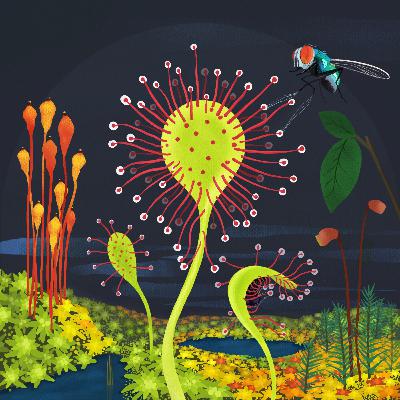
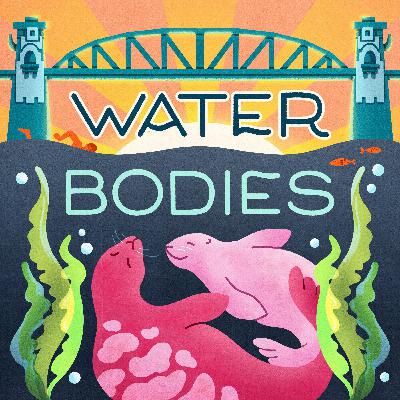

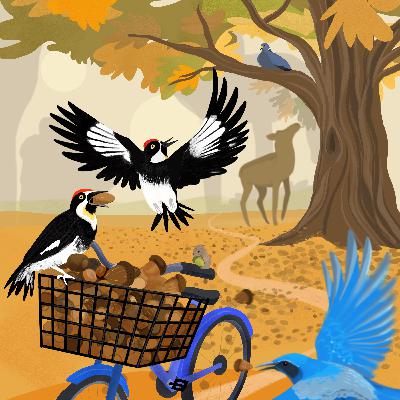
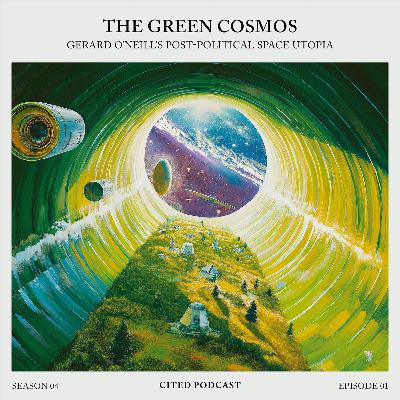
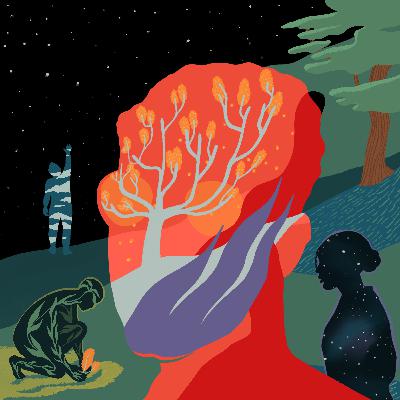
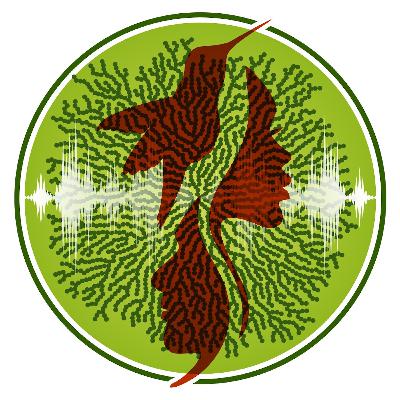
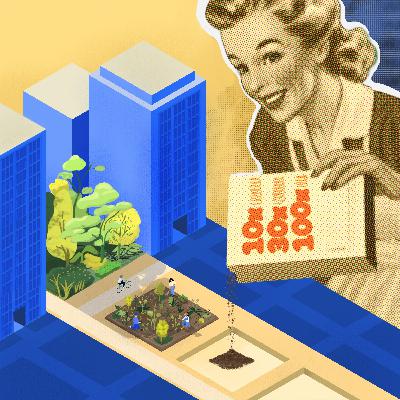
![[HYPHAEDELITY] Sarah Jim x Lucas Glenn — Ecologically-engaged art [HYPHAEDELITY] Sarah Jim x Lucas Glenn — Ecologically-engaged art](https://s3.castbox.fm/3c/7a/5d/1ab4c3990ae42a4c29fc847eda91e207d3_scaled_v1_400.jpg)
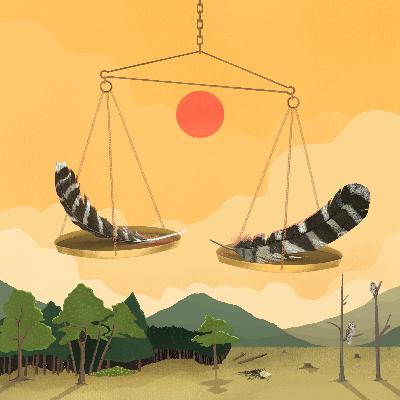
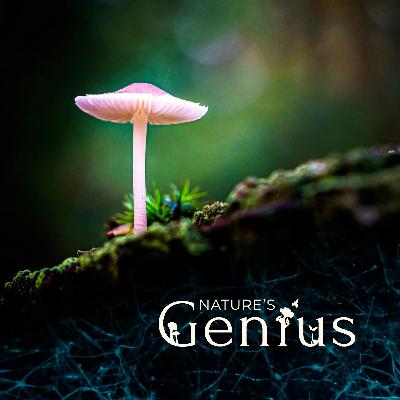

![[UNLOCKED] Skye Augustine // Diving deeper into Sea Gardens [UNLOCKED] Skye Augustine // Diving deeper into Sea Gardens](https://s3.castbox.fm/ef/23/bd/3a3a1a64ba567d258f7d09558541a53164_scaled_v1_400.jpg)







pls stop using those annoying noises in podcasts pls its interesting discussion but those noises in my ears... argh
this podcast is the best. thank you so much👍